第54章
Bagshaw wore a long political overcoat that it cost the country twenty cents a day to brush, and boots that cost the Dominion fifteen cents every morning to shine.
But it was money well spent.
Bagshaw of Mariposa was one of the most representative men of the age, and it's no wonder that he had been returned for the county for five elections running, leaving the Conservatives nowhere.Just think how representative he was.He owned two hundred acres out on the Third Concession and kept two men working on it all the time to prove that he was a practical farmer.
They sent in fat hogs to the Missinaba County Agricultural Exposition and the World's Fair every autumn, and Bagshaw himself stood beside the pig pens with the judges, and wore a pair of corduroy breeches and chewed a straw all afternoon.After that if any farmer thought that he was not properly represented in Parliament, it showed that he was an ass.
Bagshaw owned a half share in the harness business and a quarter share in the tannery and that made him a business man.He paid for a pew in the Presbyterian Church and that represented religion in Parliament.He attended college for two sessions thirty years ago, and that represented education and kept him abreast with modern science, if not ahead of it.He kept a little account in one bank and a big account in the other, so that he was a rich man or a poor man at the same time.
Add to that that John Henry Bagshaw was perhaps the finest orator in Mariposa.That, of course, is saying a great deal.There are speakers there, lots of them that can talk two or three hours at a stretch, but the old war horse could beat them all.They say that when John Henry Bagshaw got well started, say after a couple of hours of talk, he could speak as Pericles or Demosthenes or Cicero never could have spoken.
You could tell Bagshaw a hundred yards off as a member of the House of Commons.He wore a pepper-and-salt suit to show that he came from a rural constituency, and he wore a broad gold watch-chain with dangling seals to show that he also represents a town.You could see from his quiet low collar and white tie that his electorate were a Godfearing, religious people, while the horseshoe pin that he wore showed that his electorate were not without sporting instincts and knew a horse from a jackass.
Most of the time, John Henry Bagshaw had to be at Ottawa (though he preferred the quiet of his farm and always left it, as he said, with a sigh).If he was not in Ottawa, he was in Washington, and of course at any time they might need him in London, so that it was no wonder that he could only be in Mariposa about two months of the year.
That is why everybody knew, when Bagshaw got off the afternoon train one day early in the spring, that there must be something very important coming and that the rumours about a new election must be perfectly true.
Everything that he did showed this.He gave the baggage man twenty-five cents to take the check off his trunk, the 'bus driver fifty cents to drive him up to the Main Street, and he went into Callahan's tobacco store and bought two ten-cent cigars and took them across the street and gave them to Mallory Tompkins of the Times-Herald as a present from the Prime Minister.
All that afternoon, Bagshaw went up and down the Main Street of Mariposa, and you could see, if you knew the signs of it, that there was politics in the air.He bought nails and putty and glass in the hardware store, and harness in the harness shop, and drugs in the drug store and toys in the toy shop, and all the things like that that are needed for a big campaign.
Then when he had done all this he went over with McGinnis the Liberal organizer and Mallory Tompkins, the Times-Herald man, and Gingham (the great Independent-Liberal undertaker) to the back parlour in the Mariposa House.
You could tell from the way John Henry Bagshaw closed the door before he sat down that he was in a pretty serious frame of mind.